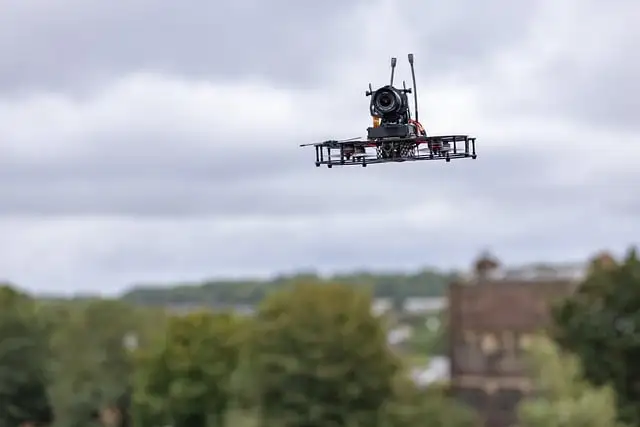Navigating Industry-Specific Tax Credits and Research Deductions for innovative UAVs (Unmanned Aerial Vehicles)
Apart from transforming skies, the booming drone technology industry is also driving an economically challenging tax regime that has a lot of scope for significant strategic optimization. This is why drone companies can benefit from innovative UAV design, software development, and operational enhancements. They have a suite of tax credits and deductions that allow them to grow their business developments while minimizing their taxes. This guide acts as your roadmap helping you to equip yourself with the knowledge and understanding that is necessary for navigating this terrain and earning massive financial rewards from drone technology start-ups.
Fueling Innovation with Research and Development (R&D) Tax Credits
Consequently, your superior development for innovative UAV design, groundbreaking software development, and operational improvements help you make substantial savings on taxes. Consider the use of R&D tax credits. These beneficial incentives enable you to earn back a sizeable part of your qualifying R&D costs. Either in the form of a reduction or recovery amount directly into your bottom line. Just remember that every drone prototype, sensor breakthrough, and revolutionary algorithm is an opportunity for a tax advantage yet to be availed.
Section 179: Taking Off with Immediate Deductions
In this way, consider the amount you would have to pay for your state-of-the-art drone fleet; in one stroke it will be deducted from your taxable income. This is not the stuff of future fantasy, but rather Section 179 deductions in reality. This provision is very powerful, allowing you to expense all the cost of qualifying equipment including drones, sensors, and ground control stations in the year of purchase. It is instantaneous financial capital to bolster your growth and innovation with tax-deductible ammunition.
Opportunity Zones: Investing in Growth, Enjoying Tax Benefits
Your insistence on technological development can also help you to promote positive community growth. Look into strategic allocations to Opportunity Zones, economically disadvantaged areas ripe for redevelopment. First, you will be adding to and perpetuating positive change, but in addition, significant tax benefits will flow your way – including capital gains deferral and exemptions from some taxes. It is important to keep in mind that your drone technology solutions can act as both progress and tax-saving catalysts.
Eco-Friendly Flight: Tax Incentives for Sustainable Skies
It is not only the environment that will profit from your love of responsible technology, your tax returns can also benefit. Income tax credits should be looked at for eco-friendly drone technology. In doing so, these incentives recognize your ability to promote solutions like low-emission propulsion systems or noise reduction designs. These can contribute to sustainability and at the same time offset tax liability. Remember, green sky means green tax savings.
Investing in Your Team: The Tax Benefits of Training
Luckily, investing in employee development through training programs may bring many tax gains. Investigate employee training credits that provide incentives for your commitment to enhancing the knowledge of your employees. The tax credits, from pilot certification to data analysis workshops, can help you compensate for the spending towards cultivating talent pools while increasing your overall tax efficiency.
Optimizing Depreciation for Your UAV Fleet
Depreciation is not a mere footnote in the accounting; it is your strategic tool for reducing tax liability of your UAV fleet. Find your way through the twists and turns of depreciation systems such as Bonus Depreciation and MACRS (Modified Accelerated Cost Recovery System) to maximize the deductions from your drones’ equipment. Remember that by employing depreciation strategies, it is possible to convert wear and tear into tax benefits.
Global Intangible Low-Taxed Income (GILTI): Guiding Your International Flightpath
The knowledge of GILTI is very important for drone technology companies that operate on an international level. This section deals with some of the foreign income that may affect your tax liability. Become aware of the GILTI considerations and consult with international tax professionals within the UAV industry to ensure compliance with global tax laws. It is important to remember that informed global tax planning leads to a seamless flight path. Consider utilizing marketplaces like IfindTaxPro. You can post your project and find the right tax specialist for you.
Strategic Tax Planning for Drone Tech Startups
From setting up your drone tech startup and into the early stages, smart tax planning matters as much. Adjust your strategies according to the peculiar twists and turns that you encounter. Make the best use of available credits and deductions. Look to make an S corporation election for potential tax benefits. Also, leverage expertise from tax professionals in the startup world. Keep in mind that, with the proper approach, your tax plan can be a tailwind pushing your business towards takeoff.
The tax code is full of opportunities for drone technology companies such as R&D credits and eco-friendly incentives to shape their financial paths. Embody these techniques, obtain expert help when required, and see your drone tech enterprise soar higher. The sky’s the limit, and you save on taxes!








